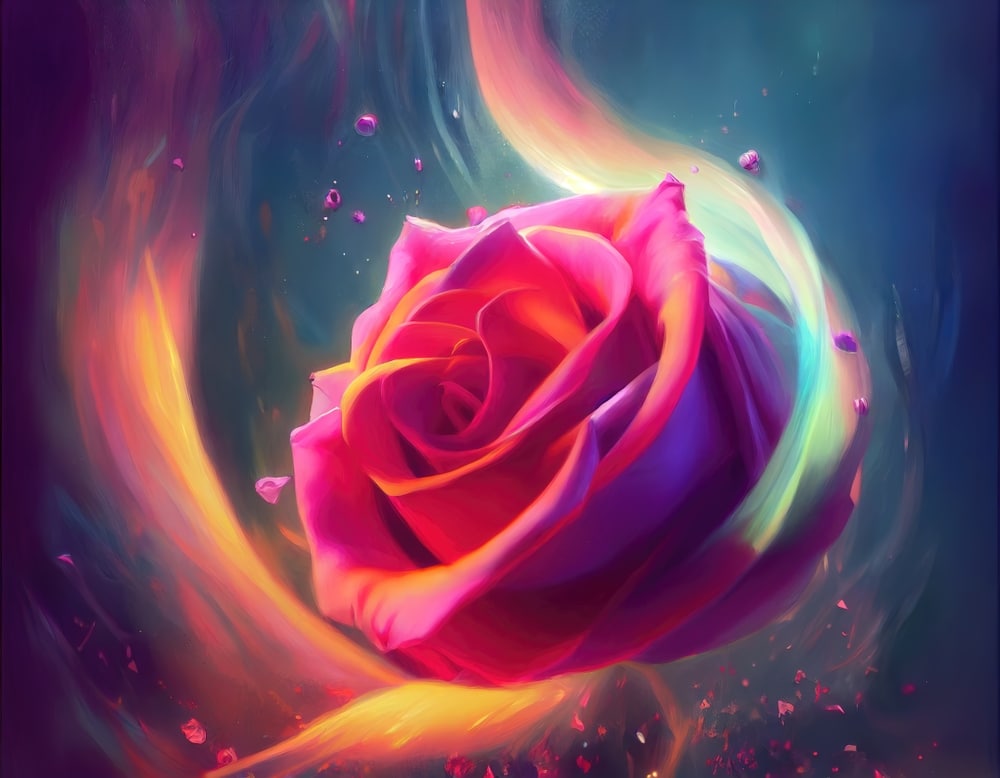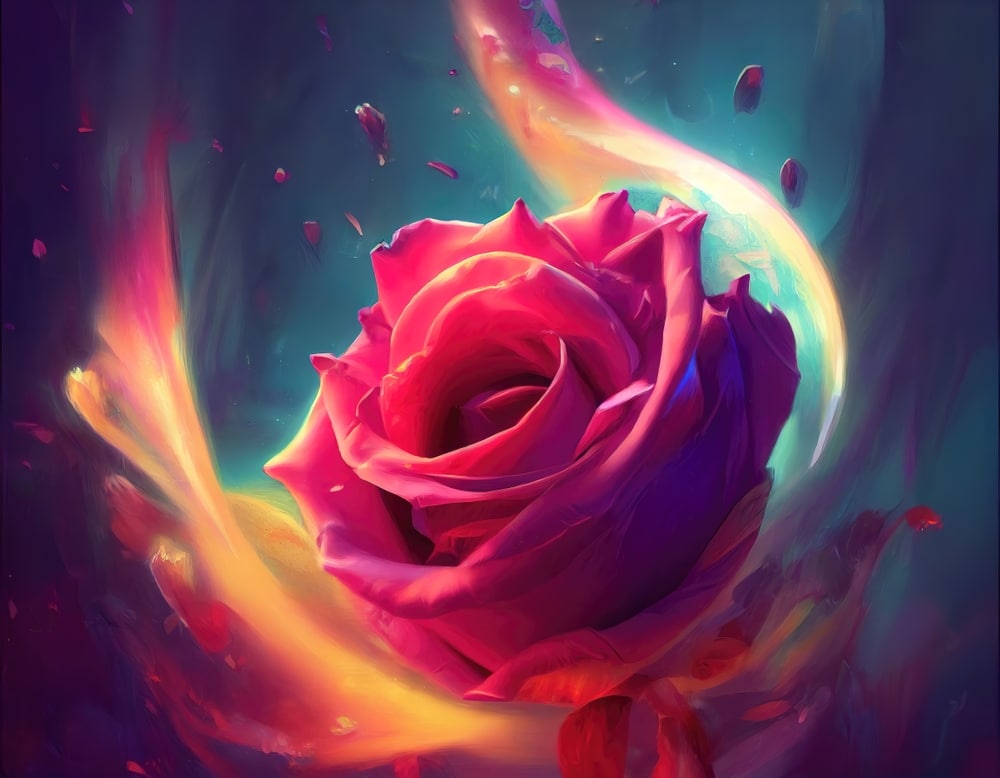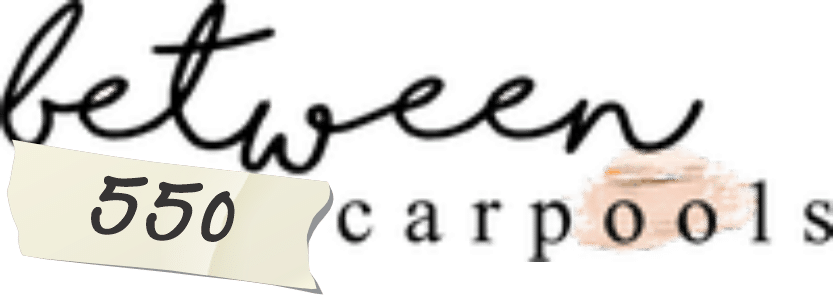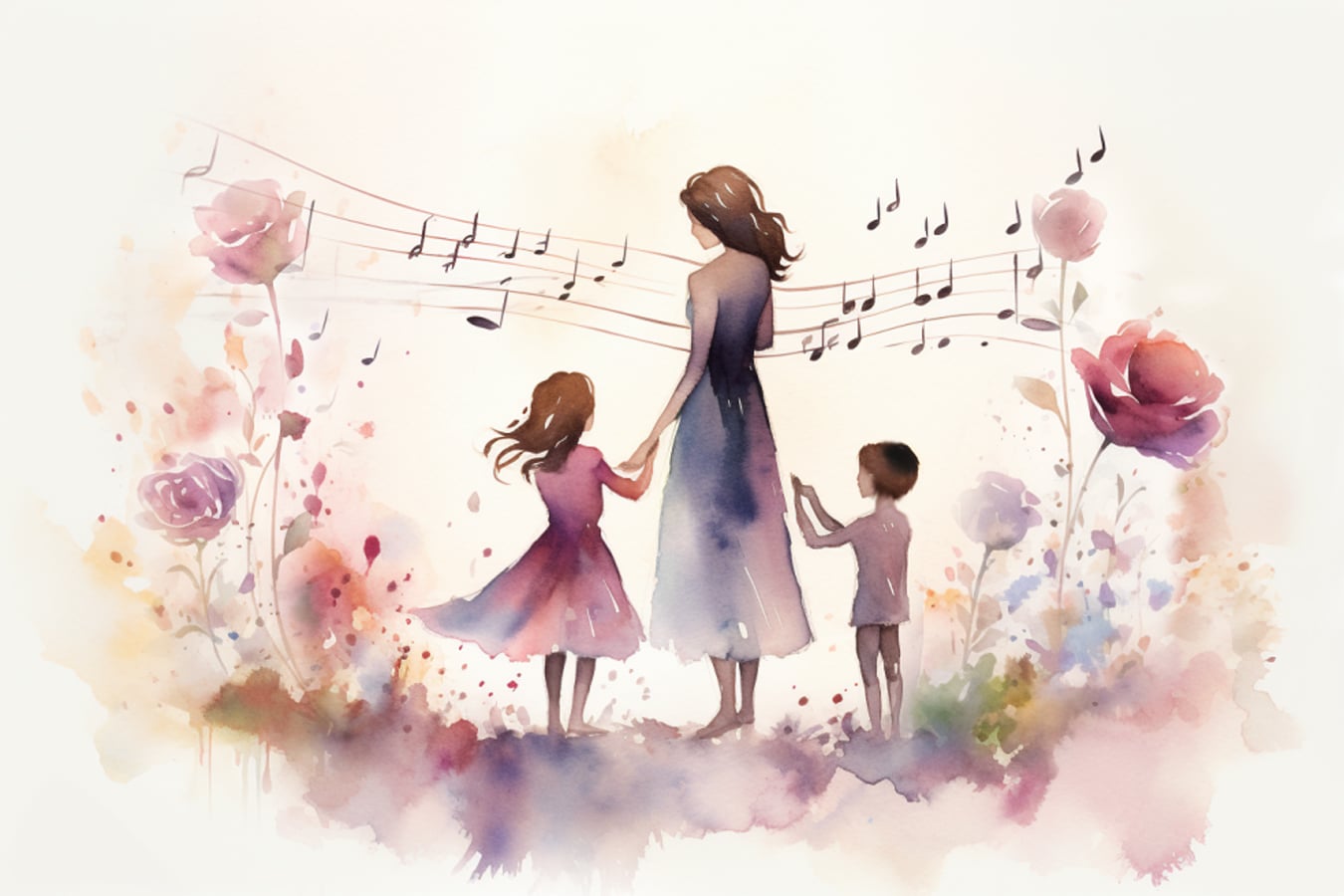You know in your mind that He loves you. But you can really, really feel it in your heart too.
We Klal Yisrael are called by a very special name in the Maoz Tzur composition—one that warms the heart, especially for us women: We’re called shoshanim, roses. Uminosar kankanim na’asah neis lashoshanim. This fragrant flower represents the loving relationship between Hakadosh Baruch Hu and us, as described in Shir Hashirim.
How appropriate it is for Hashem’s beloved nation to be referred to by this name at a time that we commemorate neis Chanukah—but perhaps not for the reason we might think. We might think, “Look at the stunning victory Hashem arranged for our tiny group of vastly outnumbered warriors, the mighty and the many fell into the hands of the weak and the few. So much love in that!” True, there’s love in that too. But that’s not where the foremost message of Hashem’s affection for us lies.
Rather, it lies in the part of the miracle we most commemorate on Chanukah: the tiny flask of oil. Have you ever noticed that we make a much bigger deal about that part of the story, which ostensibly pales in comparison to the bombastic miracle of a world superpower falling into the hands of a few weak men? Why is the Menorah, the oil (all those donuts and latkes!) the center of attention on Chanukah?
It’s because this seemingly inconsequential detail makes all the difference to how we’re meant to perceive the Chanukah story; it makes all the difference to how our beloved Father wants us to perceive our lives. Rav Chaim Shmuelevitz zt”l explains that although the miracle of the Greek defeat at the hands of the Maccabim was indeed breathtaking, it was essentially a fulfillment of Hashem’s oath to Avraham Avinu that his descendants would endure forever. But that the Yidden entered the wrecked Bais Hamikdash, found their beloved edifice in shambles, and then discovered one tiny flask of oil among the ruins? Now, that, says Rav Chaim, that was Hakadosh Baruch Hu’s “neshikah” to us—His kiss!
It was His inextinguishable message, one that He intended to reverberate throughout the years of our ensuing bitter galus, the galus we’re still plodding through today: For you, dear children, I don’t only do what I must. I also do what I want, because I love you more than you will ever know. It’s like that mother (we all know her!) who, from her great love for her child, doesn’t only keep her part of the “deal” by providing her with bread and water— she goes that extra mile to prepare those foods her child will love. To save you from annihilation, was Hashem’s message to us through the pach shemen, was My part of the oath. But to ensure that this tiny flask stays intact and to keep the flames aglow until more oil is produced? It’s this “extra” gesture that’s My hug to you.

In the words of Al Hanissim, we find an allusion to this powerful message: When the tefillah speaks of the “mammoth” miracles of winning the war, etc., we Yidden are referred to as Hashem’s nation (ule’amcha Yisrael asisa teshuah gedolah…), to whom He loyally kept his oath. But when the tefillah concludes with the miracle of the flask of oil (v’achar kach ba’u banecha…), we’re no longer called Hashem’s nation, but His children!
When we sit at the Menorah every night of this blessed Yom Tov, and we watch those candles flicker into the night, their radiance lighting up our hearts, that’s the message they’re conveying: Dear Yid, your Father loves you, He looks after you, He wants to give you everything. You are His shoshanah, they whisper, His rose among the thorns.
HOW CAN WE FEEL THIS LOVE?
Can we feel this, dear sisters? Can we sit at the licht, put all distractions aside, and just take it all in? To ponder the many ways in which Hakadosh Baruch Hu showers His love upon us, at every given moment? It’s this message that can carry us through the darkest parts of winter. It’s this message—to feel our eternal, exalted value— that will usher so much light into our hearts long after the Menorah has been polished and stored away.
It’s this message, dear sisters, that we don’t only want to know, but also to FEEL. As Rav Yisrael Salanter zt”l was known to say, the longest distance is between the mind and the heart. Often, we know in our mind what is right: how we should be communicating to our husband, how we should be connecting to our kids, how important tefillah is. But it’s somewhere between the mind and heart that the message gets lost, and we find ourselves in the dark, feeling only more guilty, more disconnected, more alone.
One powerful way to expand our cognitive awareness into emotional awareness is through the beloved medium that stirs the heartstrings: song. The Sefer Hachinuch teaches that this was the reason music and song took up such a central space in the Beis Hamikdash—to stir the heart of the Yid who was offering his korban to teshuvah. The fact that he had come reflected on his cognitive awareness that he had erred, but often the emotional awareness lags behind, and neginah has the koach to make that happen. (Cue the reflective strumming in the background!)
Just the other night, I had the merit of sharing insights on Chanukah (and life!) with hundreds of English-speaking women who gathered together here in Yerushalayim to usher the light of Chanukah into their hearts, especially when so many are feeling uneasy, lonely, and afraid.

After every nugget that I shared, we sang a song or two, accompanied by a pianist and a guitarist/vocalist. When the strumming started, something just happened in the room. Of course, words of emes are powerful in their own right—they simply strike a chord in the heart—but it was definitely the music in the background during the shiur, and then the singing that followed, that carried all of these ideas into the depths of our hearts. As they swayed and sang, the women who had gathered together to be kindled by the light of their neshamah felt just that. And before long, after some tears, the natural culmination of the evening was dance. When the heart feels so full, so imbued by Hakadosh Baruch Hu’s love and the greatness of our neshamah, that’s all we want to do! Sing and praise and dance and thank. In fact, that’s what the Maccabim were naturally propelled toward: kavu shir urenanim. They felt such gratitude, they were so overwhelmed by Hashem’s love through the “kiss” of that pach shemen, that song was a natural outcome. It’s a cycle: we start with a song to stir the heart, and as the heart fills with gratitude and awe for Hakadosh Baruch Hu’s kindness and love, we just can’t stop singing.
Song is an excellent tool to facilitate emotion, to allow what’s simmering under the surface to rise up and get released. I use this gift often before or during davening to bring myself into connection mode, when I tuck the kids into bed at night, as well as when I want to bring more joy into our home. Thanks to the power of song, the atmosphere can turn light and connective from one second to the next. Isn’t a Modeh Ani jingle way more tempting to wake up to than “Just get out of bed already?” Doesn’t Shabbos feel much more Shabbos when Mommy and the kids sing Lecha Dodi or any Shabbos song together after hadlakas neiros? This tool works especially well when I find myself tensing up around the kids or when I regret having been too uptight in my parenting. I just break into the first happy song that comes to mind, and before I know it, we’re dancing together—cuz which kid doesn’t love to see their mother happy? (The best part? You can’t keep throwing commands/complaining that no one’s listening/distancing your kids with your words when you’re singing.) So yes, a little bit of song also goes a long way to defuse tension and usher in light.
So, this Chanukah, dear sisters, let’s tap into the power of song to expand what we know in our mind into our heartspace. Whether it’s at the Menorah, with the kids, with friends, or when everyone’s out of the house and we want to treat ourselves to a more meaningful Halleil than just a quick get-it-over-with thing, let’s sing (and dance, if we’re brave enough!) to our heart’s content and feel the warmth of Hashem’s love thaw those places that went frozen over time. May this light seep deep into our hearts so we can merit to feel Hashem’s embrace today and always.
A lichtigen Chanukah to you all!
ABOUT LAHAV:
As the founder of LAHAV, and really just as a Yid who wants to bring more joy and serenity into my fellow sisters’ hearts, my dream is not just to spread the Torah’s fascinating gems on emotional wellbeing (one of them more illuminating than the next) to the minds of frum women. It is also (and more importantly!) to help them absorb it in their hearts (through unblocking the clogged channels). To not only know—but also to feel— all the goodness, all the light, Hashem wants us to experience.
As Yidden in galus, each of us has wounds in our nefesh. We want to heal those wounds (which all stem from ONE issue at their root), and we want to do it the Torah way—the only way, because it’s given to us by the One who fashioned our psyche. Ready to get to know that nefesh of yours and learn just what she needs for true, long-lasting healing? Our next cycle of Project Kindle—where we do just that in an interactive, positive environment— starts MONDAY after Chanukah!
In this 8-week, 100% Torah-sourced course (live in Yerushalayim or by Zoom/phone around the world), we shine a light into our emotional landscape, igniting the spark that’s been waiting to be rekindled all these years (fits right in to the Chanukah theme, doesn’t it?). We get to know ourselves in a way we never did and what we discover is so exhilarating.
It’s your time to shine, dear sister. Make it happen this winter.
For more information, visit LAHAV, write to info@lahavinitiative.org, or call Esther Malky at 929-884-1726/ 055-322-7936. Chanukah Gift! Use the promotion code BCP until Sunday, December 17, to receive a $20 discount on the program. Check out the exciting VIP option.
To listen to demos or other LAHAV shiurim, including a BRAND NEW series of nefesh-oriented messages on the parshah, visit LAHAV or call the hotline at 646-693-1700/072-370-1938. To receive free messages on emotional wellbeing from a Torah perspective as well as LAHAV updates, write “SIGN UP” to info@lahavinitiative.org.
Segments of this article originally appeared in Wellspring Magazine.





Shiffy, there you go again inspiring us Jewish woman with so much love for our father! Thank you so much for this well written, emotion provoking article!
WOW! So powerful I never put thought to the words of Maoz Tzur and never noticed how we are referred to!
How relevant for CHanuka and all year round!
I would love to join this program but I need the time to make arrangements in order to be available for Monday morning at 11. Is it possible to join one week in?
Dear Miri,
Here’s an EXCITING UPDATE for you!
Due to technical arrangements, Project Kindle is starting one week later– NEXT week MONDAY DECEMBER 25 iyH at 11 am (the in-person program starts SUNDAY Dec 24 in EY). One week left to sign up for a program that will bring so much clarity, light, and joy into your life!
✨ It’s Your Time to Shine! ✨ For more information, visit https://lahavinitiative.org/kindle/.
How can I get more information about the artist and artwork associated with this article (mother and 2 children with musical notes)